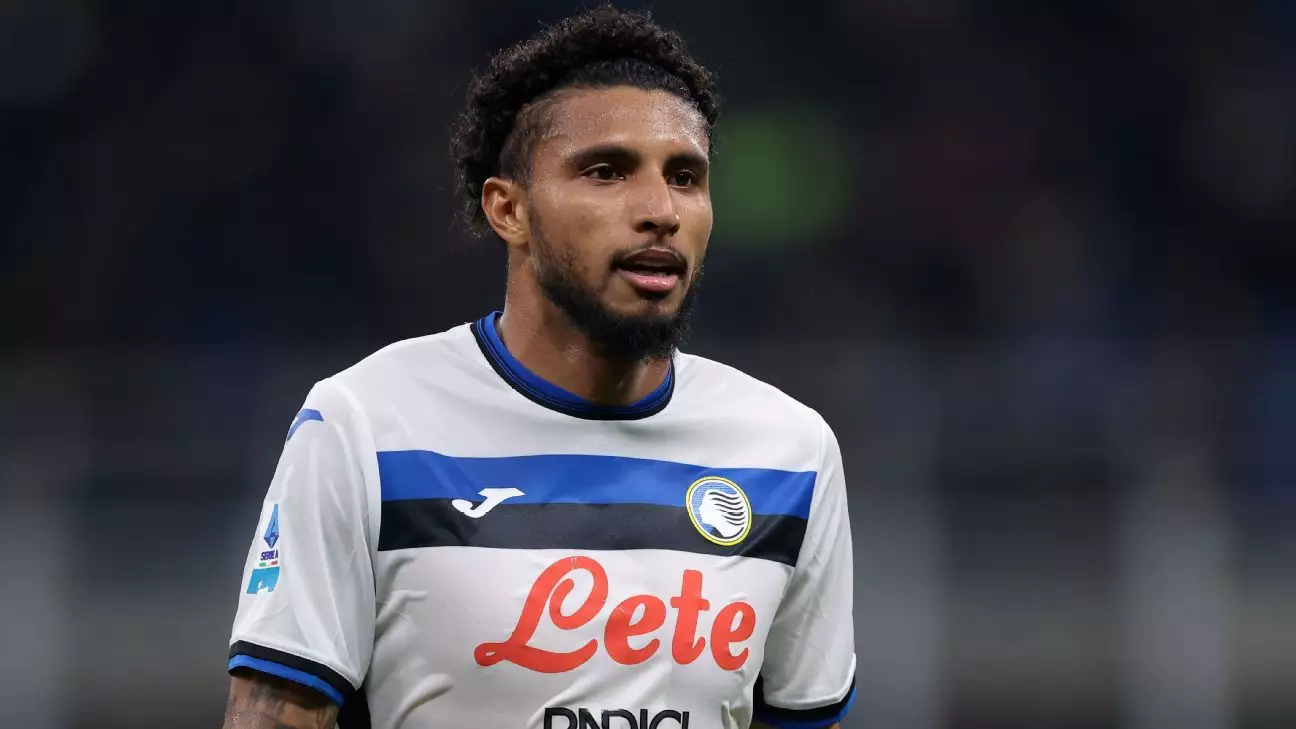As the January transfer window approaches, Manchester United is intensifying efforts to bolster its midfield with the acquisition of Atalanta’s promising talent, Éderson. The Brazilian midfielder has emerged as a preferred option for the Red Devils, primarily driven by the uncertainties surrounding Casemiro’s future at the club. This pursuit is fueled by the understanding that a stronger midfield is imperative for revitalizing a squad that has struggled for consistency. The reality, however, is layered; securing a player of Éderson’s caliber is no simple task. With competitors like Manchester City eyeing the same talent, the stakes are higher than ever.
Éderson is not only known for his critical passing skills and the ability to control the tempo of a game, but he also represents a tactical vision that aligns seamlessly with manager Ruben Amorim’s aspirations for the squad. Such strategic signings might be essential to not only enhance player’s performances but also to rejuvenate the club culture after periods of mediocrity. Therefore, targeting a player who is seen as a “dream” addition speaks volumes about United’s ambition; they are not merely looking to fill gaps but to invest in transformative talent that can pivot the club towards a brighter future.
The Juventus Reshuffle: A Need for Fresh Striking Options
Meanwhile, Juventus is on the verge of significant changes within its forward line, particularly as they contemplate the departure of Dušan Vlahović. With reports surfacing indicating an intention to replace the Serbian striker, Rasmus Højlund of Manchester United has surfaced as a hot candidate. Juventus, sitting fifth in Serie A and trailing the title contenders considerably, understands that maintaining a competitive edge necessitates agility in the market and rethinking their attacking strategy.
Højlund, having shown flashes of potential at United, offers Juventus a chance to revitalize their attack. The club faces a dual challenge: replacing a leading striker while maintaining competitiveness, all while avoiding the risk of a free transfer scenario. The urgency of rethinking their offensive capabilities cannot be overstated, and the interest in players like Wolverhampton’s Matheus Cunha further underscores their proactive approach. For a club historically known for its attacking prowess, this strategic overhaul may be necessary to regain their place among Europe’s elite.
Manchester City’s Pursuit of Youthful Brilliance
Across the city, Manchester City is eyeing Paris Saint-Germain’s winger, Désiré Doué, with Pep Guardiola reportedly keen on integrating fresh, youthful energy into his squad. At just 19 years of age, Doué represents not only raw talent but also the long-term vision that City aims to implement. Guardiola’s admiration speaks to his coaching philosophy—nurturing young talent to complement established stars.
However, navigating the complexities of this deal may pose challenges in itself. With PSG reportedly placing a €100 million price tag on Doué, City must weigh the financial implications against potential on-field gains. The ever-intensifying competition for young players across Europe makes such investments crucial, as clubs like City aim to secure the crown jewels of future footballing talent.
Goalkeeping Depth and Youth Development
Another development to watch is Manchester United’s interest in Freddie Woodman, currently with Preston North End and set to become a free agent. This move reflects a strategic thought process that goes beyond immediate needs; it signals an investment in squad depth and resilience, particularly at a time when injuries and performance dips are common. If Woodman fulfills the role of a reliable third-choice goalkeeper, he could offer the kind of security that allows first-choice players to perform without pressure.
On the youth front, clubs like Bayer Leverkusen and Tottenham are looking at PSG’s Axel Tape. The 17-year-old centre-back may not yet be ready for prominent first-team duties, but investing in young prospects like Tape can pave the way for significant benefits. It reflects a broader trend where clubs are increasingly willing to look beyond immediate returns, investing in the future of talented youth while navigating the increasingly complex landscape of European football.
In this whirlwind of transfer activity, clubs like Manchester United and Juventus are at pivotal junctures. Balancing ambition with pragmatism is not merely a luxury but a necessity in today’s highly competitive footballing environment. With strategies centered around talent acquisition and tactical evolution, the January transfer window is set to redefine the landscape of European football.

Leave a Reply